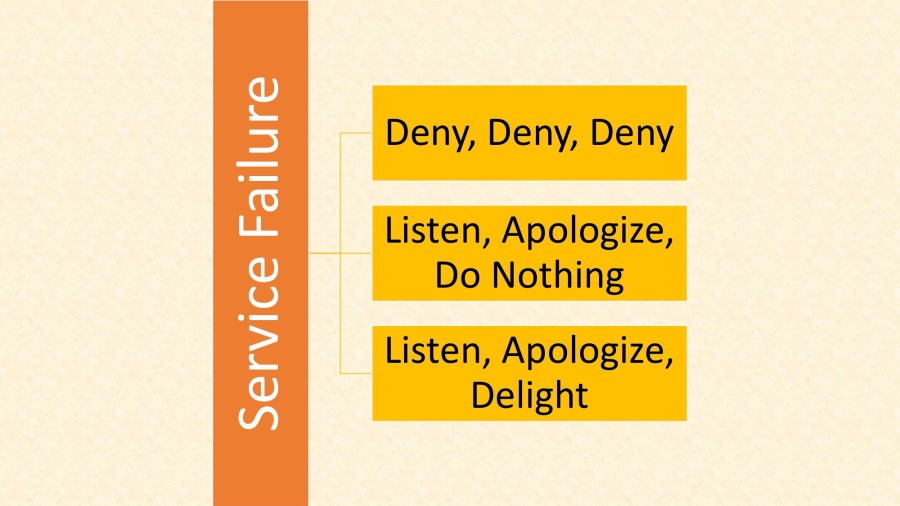
All organizations are ultimately in the service business. And when people are involved- mistakes do happen. And customers can become unhappy. This is “service failure”. How you make customers happy again, is “service recovery.” Happy customers are loyal customers.
Even when you supply a tangible product the customer is looking for a great “user experience”. This includes experiences of (1) ordering the product online (2) getting an order acknowledgement (3) Shipping info (4) Unboxing experience (5) User experience with the product itself. You can think of service recovery like a great product return policy.
It’s easier to think about “Service Recovery” in the restaurant business ( yes during dine-in before/after COVID times!). You order something and what the waiter brings is different or not upto your expectations. You complain. What happens after you complain is service recovery in action. Here are some ways this can play out:
- Deny,Deny, Deny : The waiter denies that there is a problem. Yes this is rare in restaurants but does happen in a variety of customer situations. Some organizational cultures simply do not want to admit fault. This could be because of a variety of reasons including (a) fear of lawsuits (b) fear of being questioned on the processes in place (c) overconfidence about the unique product or service provided (d) admitting failure always involves some costs that the system is not willing to take.
- Listen,Apologize but Do nothing: The waiter can listen patiently/respectfully but really do nothing. Possible and viable excuses could be “the kitchen is closed for the night” etc. If there is a genuine situation , eg. its really late night customers are quite happy with this approach. They may even come back.
- Listen, Apologize, and Delight: Organizations that understand the value of their customer,brand and reputation have budgeted for errors. Employees are empowered to replace orders immediately. Some restaurants make a big deal of this and the manager comes to your table, apologizes and delights you with a “free” small dessert. In many organizations , the frontline service provider is authorized to directly take action like replacing or offering a “feel good” small dessert! You can bet that the customer will come back and will tell friends about the positive experience.
Whatever, your organization’s policy from the above, its critical to learn from every incident of service failure. This learning can improve your process and keep reducing service failures.
We do advocate the third option of Listen,Apologize, and Delight for your good customers. Good,loyal customers are very hard to find.